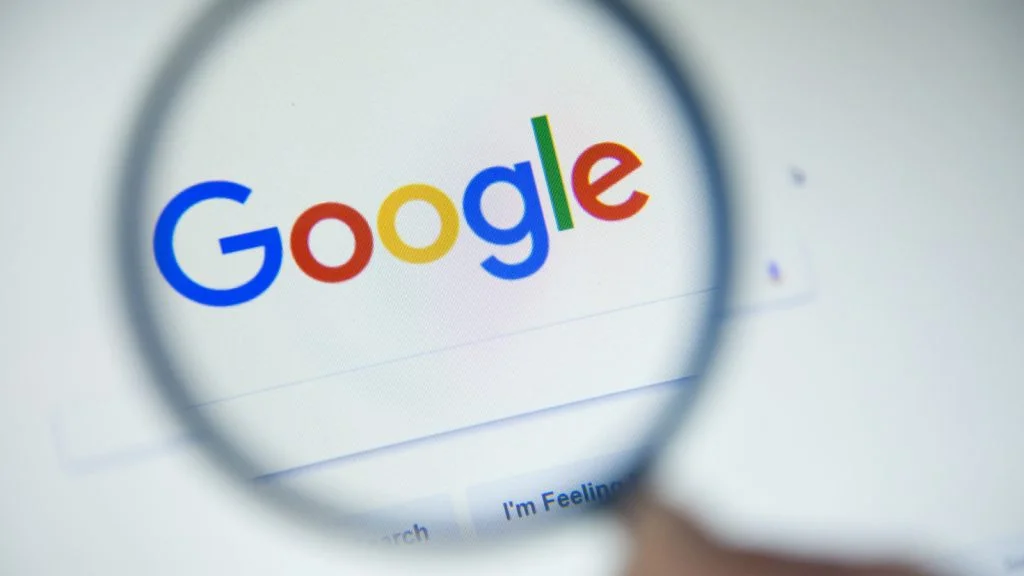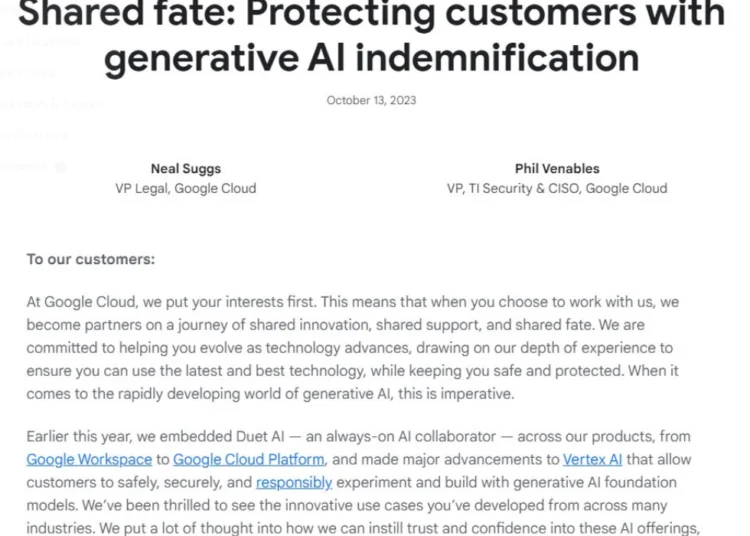Google has declared its intention to defend users of generative artificial intelligence (AI) systems on its Google Cloud and Workspace platforms against allegations of intellectual property infringement.

In a recent blog post, Google clarified that consumers utilizing products with integrated generative AI capabilities will receive legal protection. This announcement addresses growing concerns regarding the potential copyright issues of generative artificial intelligence. This action aligns Google with other companies, such as Microsoft, Adobe, and others, that have made comparable assurances.
Google specifically listed seven products that fall under this legal protection. Duet AI in Workspace, which includes text generation in Google Docs and Gmail and image generation in Google Slides and Google Meet; Duet AI in Google Cloud; Vertex AI Search; Vertex AI Conversation; Vertex AI Text Embedding API; Visual Captioning on Vertex AI; and Codey APIs are the products. Notable is the absence of Google’s Bard search engine from this list.
Google reveals that:
“If you are challenged on copyright grounds, we will assume responsibility for the potential legal risks involved.”
Google has introduced an innovative two-pronged strategy for intellectual property indemnification. Under this initiative, Google protects the training data and the results its foundational models produce.

This means that if someone is sued for using Google’s training data, which contains copyrighted content, Google will be responsible for defending against the lawsuit.
The company clarified that training data indemnification is not a novel form of protection. However, Google acknowledged that its customers have expressed a desire for obvious and explicit confirmation that this protection extends to situations where the training data contains copyrighted material.
Google will also defend users who face legal action due to the results they obtain using its foundation models. This includes scenarios in which users produce content similar to published works. The company emphasized that this protection is contingent on users not producing or utilizing content with the intent to violate the rights of others.
Other companies have issued identical statements. Microsoft has pledged to assume legal liability for enterprise consumers of its Copilot products. On the other hand, Adobe reaffirmed its commitment to protecting enterprise clients from copyright, privacy, and publicity claims when utilizing Firefly.
